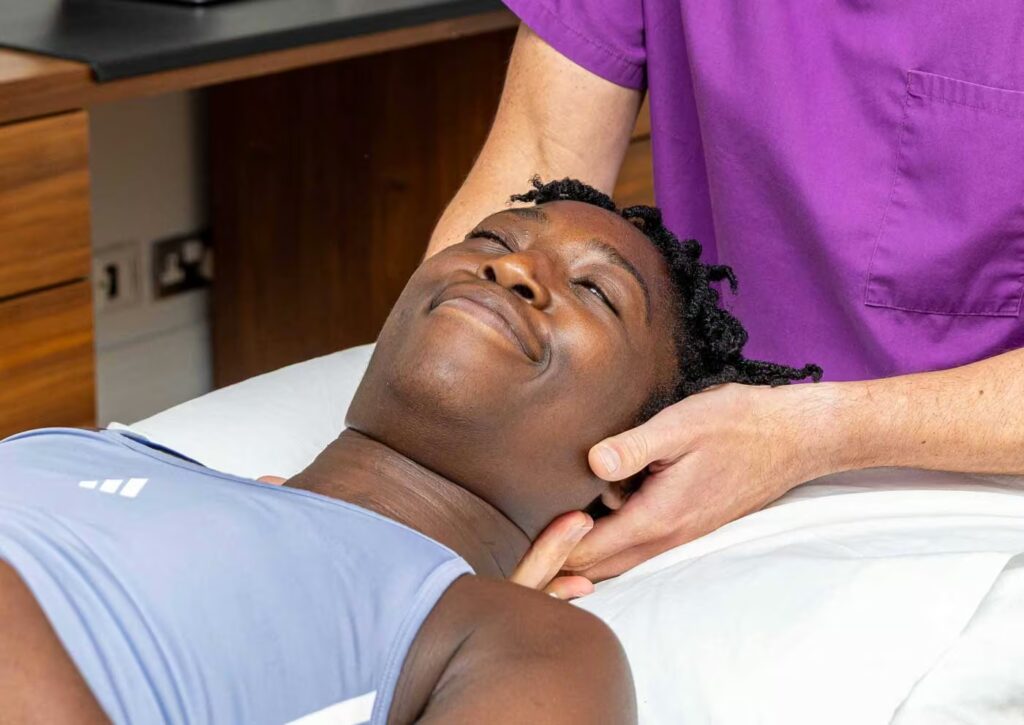
Conditions
What is TMJ?
TMJ stands for temporomandibular joint, which is the joint that connects your jawbone to your skull. TMJ disorder refers to a range of conditions that can cause pain and dysfunction in the jaw joint and the muscles that control jaw movement. Symptoms can include jaw pain or stiffness, clicking or popping when opening or closing the mouth, headaches, earaches, and difficulty chewing or speaking. TMD can be caused by a variety of factors, including injury to the jaw joint, grinding or clenching of teeth, stress, and arthritis.
Common symptoms of TMJ?
Common symptoms of TMJ include:
- Pain or tenderness in the jaw joint, face, neck, or shoulders
- Clicking or popping sounds when you open and close your mouth
- Difficulty opening your mouth wide or locking of the jaw
- Aching pain in or around the ear
- Headaches or migraines
- Earaches or tinnitus (ringing in the ears)
- Swelling on one or both sides of the face
- Feeling tired or fatigued in the jaw muscles
- Uncomfortable or painful bite
- Toothaches, neck aches, dizziness or hearing problems, such as hearing loss, may also occur.
TMJ Treatment
At the Good Health Centre, our practitioners can use a variety of techniques to help treat TMJ, depending on the underlying cause and severity of the condition. Common treatment approaches include:
- Soft tissue techniques: Osteopaths may use soft tissue techniques – including massage, myofascial release, and trigger point therapy – to help relieve muscle tension and pain in the jaw and surrounding areas
- Cranial osteopathy: Cranial osteopathy is a gentle technique that can help balance the cranial bones and the muscles and tissues in the head and neck. It can be helpful in treating TMJ as it can help to restore proper alignment of the jaw and relieve pressure on the joint
- Joint mobilisation: Osteopaths can use joint mobilization techniques to help restore proper movement and function to the jaw joint which may involve gentle stretching, traction, or manipulation of the joint
- Exercise therapy: Osteopaths can prescribe exercises to help improve range of motion, strength, and flexibility in the jaw and surrounding muscles such as stretching, strengthening, and relaxation techniques
- Lifestyle modifications: Osteopaths can also provide advice on lifestyle modifications including diet modifications, stress reduction techniques, and proper posture that can help reduce the risk of TMJ or aggravate existing symptoms